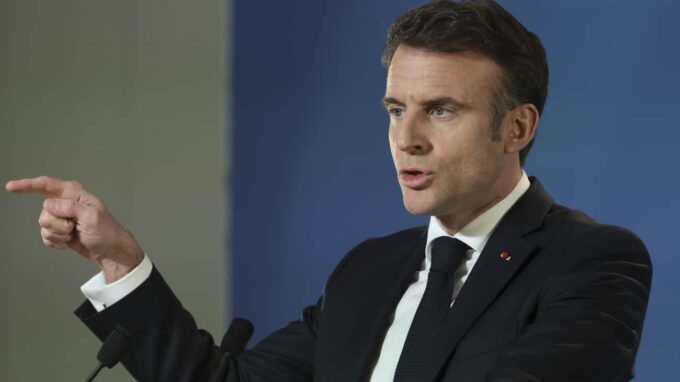Macron strives to initiate direct dialogue between Ukraine and Russia after a ceasefire: the French leader expresses readiness for important diplomatic steps

In a challenging period of the Ukrainian-Russian conflict, French President Emmanuel Macron has once again drawn the international community’s attention to the possibility of resuming diplomatic efforts to achieve peace. According to him, France is prepared to act as a mediator and assist in initiating direct negotiations between Kyiv and Moscow, but adherence to certain conditions is crucial — in particular, the implementation of a 30-day ceasefire. Macron expressed his position during an official visit to Kyiv in an interview with TF1/LCI. He noted that France and its European allies, together with the USA, are genuinely committed to reaching a consensus on diplomatic resolution of the conflict and demonstrate unity in their desire to prevent further escalation. “We all need to show each other that collective spirit and shared responsibility are the key to peace,” emphasized the French leader. Emmanuel Macron highlighted that the planned 30-day truce should serve as the first step toward continuing the negotiation process. “We are ready to help Ukraine and Russia sit at the negotiation table, but first, it is necessary to establish the ceasefire regime for a defined period — specifically, 30 days. This is an important signal for both sides and the international community,” he stated. The head of France also added that this is not merely a technical requirement but a necessary condition for moving to constructive dialogue. “If this ceasefire is observed, the likelihood of starting direct negotiations will increase. Then we can help the parties find a compromise and, possibly, bring an end to this terrible war,” Macron said. At the same time, the French president clearly emphasized that if agreements are ignored and the ceasefire conditions are not fulfilled, Europe and the USA will take additional measures — in particular, targeted strict sanctions. In his view, a firm and consistent approach, combined with diplomatic pressure, will help steer the conflict back onto a peaceful course. Another important aspect discussed during the interview was the response from Washington. Notably, U.S. President Donald Trump, after a phone conversation with Ukrainian President Volodymyr Zelensky on May 8, expressed a desire to see an unconditional 30-day ceasefire. Meanwhile, the American news agency Reuters reported that the United States and their European allies have already developed a concept for declaring such a short-term ceasefire. According to sources, this proposal has not yet been officially adopted, and its discussion is scheduled for the “Decisive Coalition” summit to be held in Ukraine in the coming days. In fact, this summit will serve as a key platform for discussing prospects for peace and the possible format of a diplomatic initiative. Western leaders intend to reassess the positions of all parties involved and determine how to facilitate a return to negotiations and halt the bloodshed. The boundaries of diplomacy and the realities of war remain extremely complex, but new signals are emerging about the possibility of easing tensions and returning to constructive dialogue. Clearly, the question of the status and timeframes of the ceasefire will become one of the main topics on the agenda in the coming weeks. Overall, the position of the French president and U.S. diplomats demonstrates a commitment to a diplomatic resolution to the crisis based on principles of firmness and mutual respect. Whether they can convince the parties to adhere to the proposed conditions remains to be seen. But one thing is already clear — collective responsibility and international solidarity must become the main tools in the search for long-term peace in Ukraine.

